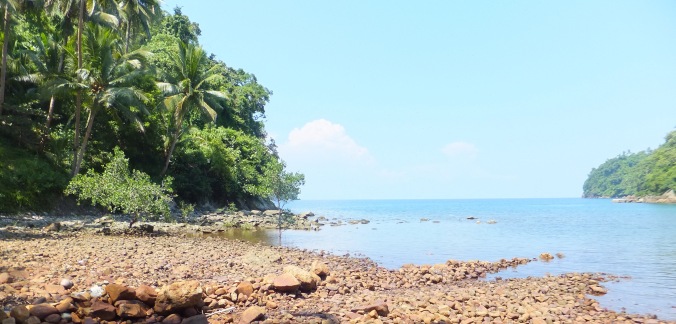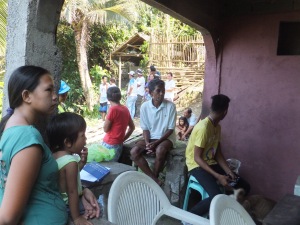Aside from providing a total island power solution through the development of a 40-megawatt geothermal power plant at Oriental Mindoro, geothermal company Emerging Power Inc. (EPI) also has another goal: provide sustainable sources of income opportunities to the local residents.
In my previous post, I have said that for me, corporate citizenship should be concerned with providing opportunities for the whole family by promoting prospects for entrepreneurship, among others. And this is what EPI is doing when planning the geothermal power plant – thinking of the benefits it can bring to the community.
Aside from providing jobs with the construction of the geothermal plant, EPI is also finding ways to provide the resources to develop the non-power application of geothermal energy. EPI’s aim is simple: study and develop the commercially viable businesses that capitalize on the energy from the geothermal plant.
This concept may be unheard of to many, which is not surprising since according to the Department of Energy, “The country has yet to take off in terms of development of non-power applications of geothermal energy resources.”
But just how can we use geothermal energy in other ways? According to the Food and Agriculture Organization (FAO) of the United Nations, geothermal energy can be used for geothermal heat pumps, space, green and aquaculture heating, agricultural drying, industrial uses, bathing and swimming and cooling or snow melting (in the case of cold countries.)
FAO also identified four ways of applying geothermal energy for agriculture namely, greenhouse heating, aquaculture, agro-industrial processing and soil heating for open-field plant root systems.
The DOE admits that the Philippines can build spa resorts and venture in crop-drying with our geothermal resources. However, the lack of awareness together with the prohibitive costs of developing such venture limits the potential of this concept.
At EPI, there is a team tasked to develop and coordinate the stakeholders to realize the potential of non-power application of geothermal in Najuan. The group is working on the development of an Integrated Agro-Tourism complex that will boast of a Medical Spa and Hotel, Ecotourism, Aquaculture and Agribusiness. The complex will be composed of 50 hectares of EPI-owned land and hopefully some 500 hectares of surrounding land as EPI plans to assist the landowners in the area to participate in the project.
EPI is working with ITALPINAS, Italian property and design experts, and agri-aqua-forest experts from the University of the Philippines – College of Economics and Management Alumni Association, Inc. (UPLB-CEMAFI). The experts from the UPLB-CEMAFI have conducted a feasibility study on the best-suited type of agro-tourism complex for the area. A Mindoro Agro-Tourism Master Plan is currently being crafted and will be presented to all stakeholders soon.
EPI’s project is inspired by the example of Iceland as it has the famous Blue Lagoon, situated near a geothermal power plant. Blue Lagoon is frequented by tourists who bathe in the water and apply the Silica mud to their skin, which can cure skin diseases. The area is also frequented by tourists for their spa and medical clinics. Plus, cosmetic products are now being produced and sold by the island.
Aside from the Blue Lagoon, Iceland also boasts of fish processing system using geothermal heat. In fact, the country is a great example of how non-geothermal application can be used for aquaculture heating. Iceland, after all, is the largest exporter of Bacalao in the whole world.
Mindoro is abundant in coconut, bananas, forest products and herbs, to name a few. As such, a study on the possibility of using geothermal fluids to process these produce of the local community is being undertaken.
What is in store for the community with this project?
The planned Integrated Agro-Tourism complex is estimated to generate some jobs for Najuan, thereby increasing the per capita income per person in the area. The project is also expected to increase the number of tourists in the area, which in turn will increase the foreign currency reserves and agricultural production and farm revenues. The city, municipality and provincial governments will generate tax revenues from this undertaking, too.
Clearly, EPI does not only intend to build a geothermal power plant in the area. It is planning and working hard to uplift the economic conditions of local residents, as well. This is consistent with my personal belief that we must find opportunities for entrepreneurship for others while enhancing God’s gift of nature to us. This project allows EPI to do both.
References:
https://www.doe.gov.ph/renewable-energy-res/geothermal
Uses of Geothermal Energy in Food and Agriculture: Opportunities for Developing Countries. Food and Agriculture Organization (FAO) of the United Nations Retrieved from: http://www.fao.org/3/a-i4233e.pdf

